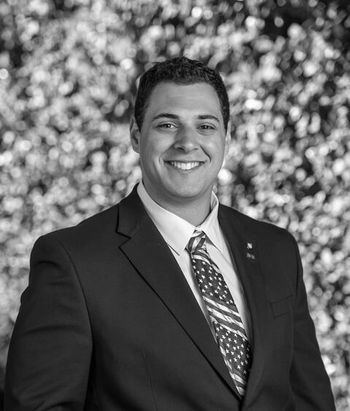Rather than ask directly about race, college now asks how applicants will be personally 'impacted' by affirmative action ruling
Sarah Lawrence college is taking a swipe at the Supreme Court over its ruling banning affirmative action in its application essays for the upcoming semester.
"[D]escribe how you believe your goals for a college education might be impacted, influenced, or affected by the Court's decision," the essay prompt reads.
In response to the Supreme Court ruling against affirmative action in college admissions, one college is now prompting students to share their opinion on the ruling as part of the application process.
Sarah Lawrence College, a private liberal arts college in Yonkers, New York is including a new option in its application essays for the upcoming semester. The prompt takes direct aim at the rulings in Students for Fair Admissions v. Harvard and Students for Fair Admissions v. UNC, asking students to write about their lives would be affected by the rulings.
“In a 2023 majority decision of the Supreme Court of the United States, Chief Justice John Roberts wrote, ‘Nothing prohibits universities from considering an applicant’s discussion of how race affected the applicant’s life, so long as that discussion is concretely tied to a quality of character or unique ability that the particular applicant can contribute to the university,’” the prompt reads. “Drawing upon examples from your life, a quality of your character, and/or a unique ability you possess, describe how you believe your goals for a college education might be impacted, influenced, or affected by the Court’s decision.”
[RELATED: SCOTUS rules against affirmative action in college admissions]
McKenna explained the prompt in a statement to Campus Reform.
”Over the past few years, one of our three optional admissions essay prompts has asked students to reflect on what diversity and inclusivity means to them as they look ahead to their college years,” McKenna said.
”In light of the Supreme Court’s recent decision changing the landscape of how colleges and universities talk about race, ethnicity, and access to higher education, we felt we should find a way to update our prompt. Just as our other optional prompts foreground aspects of our learning community like our open curriculum and our particular model of rigorous faculty-mentored student research, we felt this new prompt could reinforce two key attributes of our community: that we ask our students to take on challenging issues in society head-on with intellectual rigor and thoughtfulness; and, that our community believes the national conversations on race are important ones that should occupy a place of prominence in higher education.”
[RELATED: NAACP calls on colleges to pledge ‘Diversity No Matter What’ following SCOTUS ruling]
McKenna said further that the college is not only interested in applicants who would be negatively impacted by the ruling:
”It was very important to us in the wording of this prompt that students who might have very opposite opinions of the ruling would feel equally welcome and at home responding to this question. I can absolutely imagine students who don’t feel directly impacted by the decision still being motivated to respond with regard to what it may mean for the college of their choice once they arrive there.”
”As a college that believes we all learn best when presented with differences of background and perspective, all seated at a round table, our interest is in how a prospective student might craft a compelling statement or narrative on an important societal topic—not what ideological side (if any) they identify with,” McKenna added.
”And it’s worth keeping in mind that our admissions office puts equal weight on a student choosing to answer any one of these three optional prompts—we don’t believe anyone should feel compelled or expected to answer this specific one in order to gain admission, especially if they are more drawn toward one of the other two.”

